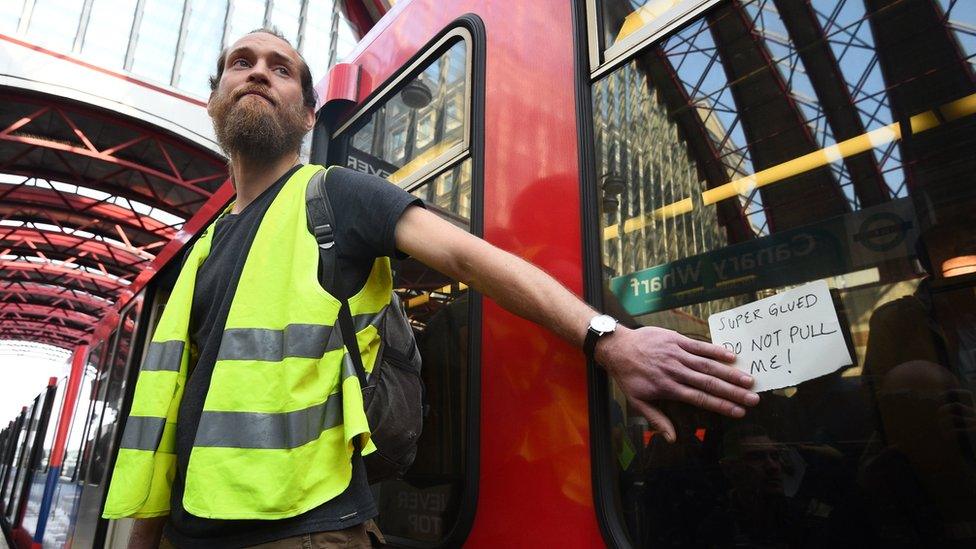Why do people go on strike?
- Published
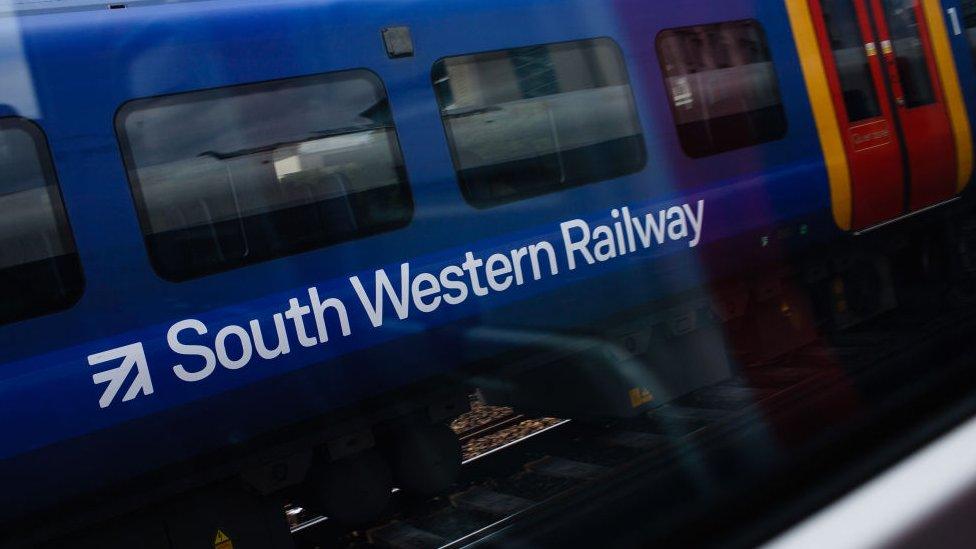
Workers at the South Western Railway (SWR) company have begun a 27-day strike.
It comes after talks between the Rail, Maritime and Transport (RMT) union and the train company broke down because of an argument over guards.
The company said the strike was "unnecessary". It said "more than half" of weekday trains will run and warned of queues at stations.
The union said the strike was "in defence of passenger safety".
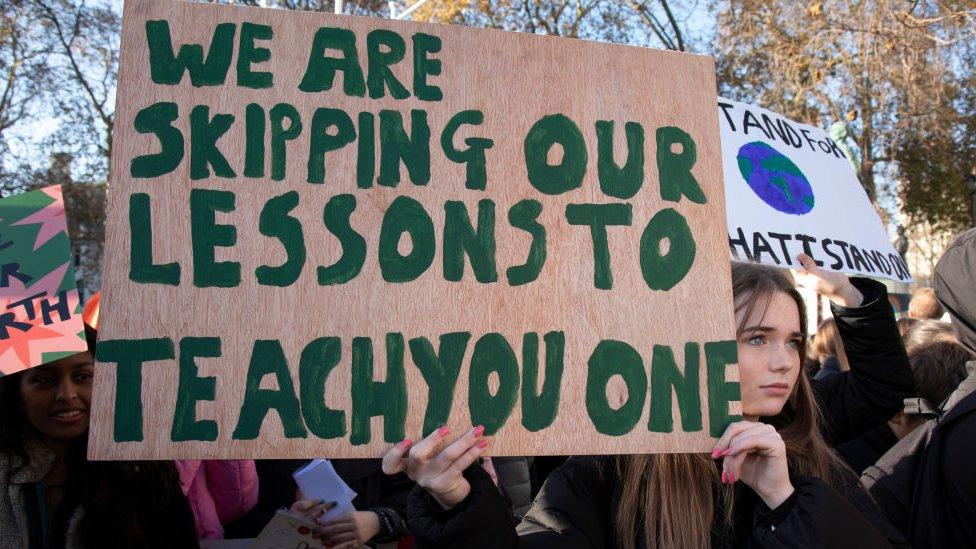
But what is a strike and why do people do it?
A strike is when a group of people, in this instance workers, agree to stop working.
They do this to protest against something they think is unfair.
Workers hope that in stopping working the people in charge will listen to their demands.
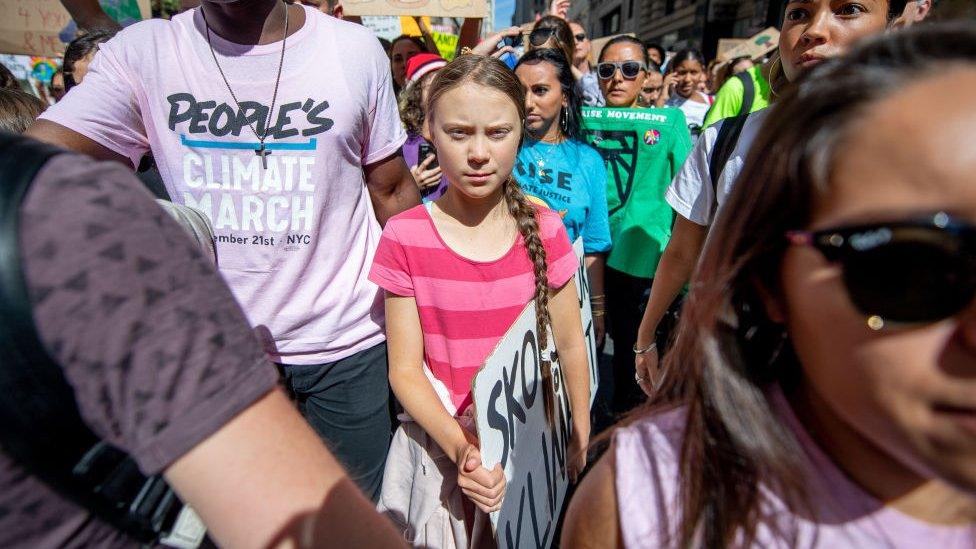
Climate activist Greta Thunberg
All sorts of people strike
It's not just workers who strike, kids have been striking too in response to climate change.
In 2018 Swedish teenager Greta Thunberg had her first "School Strike for Climate".
Since then hundreds of thousands of kids across the world have gone on strike for llimate change too and even marched along the streets.
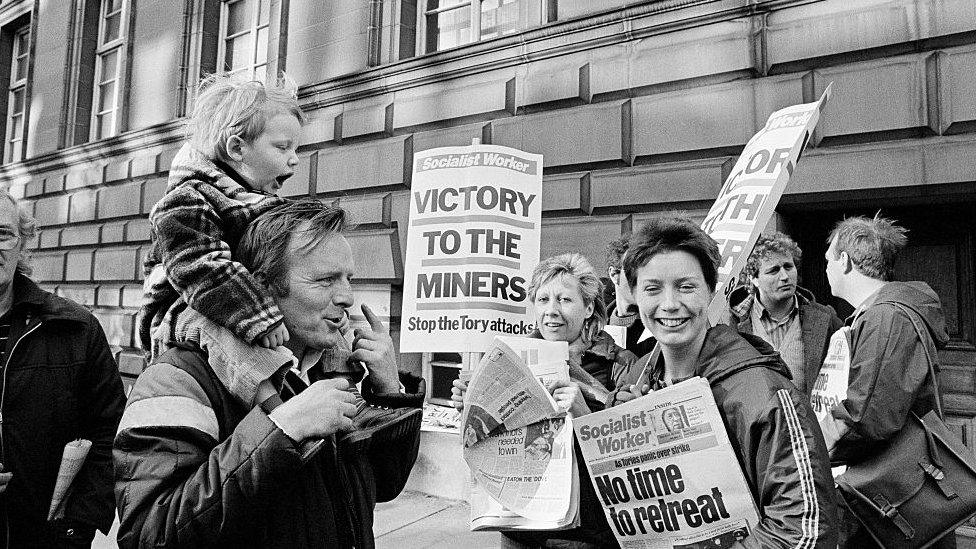
When did this all start?
Strikes became common during the Industrial Revolution in the 1800s.
It was a time where there were big changes in the UK and labour became important as more factories popped up with workers who worked with things like wool.
Miners were needed to dig for the coal that was burned to run the factories and local housing but conditions were poor and the workers weren't paid well so many people went on strike.
One of the most well known miners' strikes was in 1984.
This was a long and bitter strike held because workers were to lose jobs in the coal industry.
- Published19 August 2019
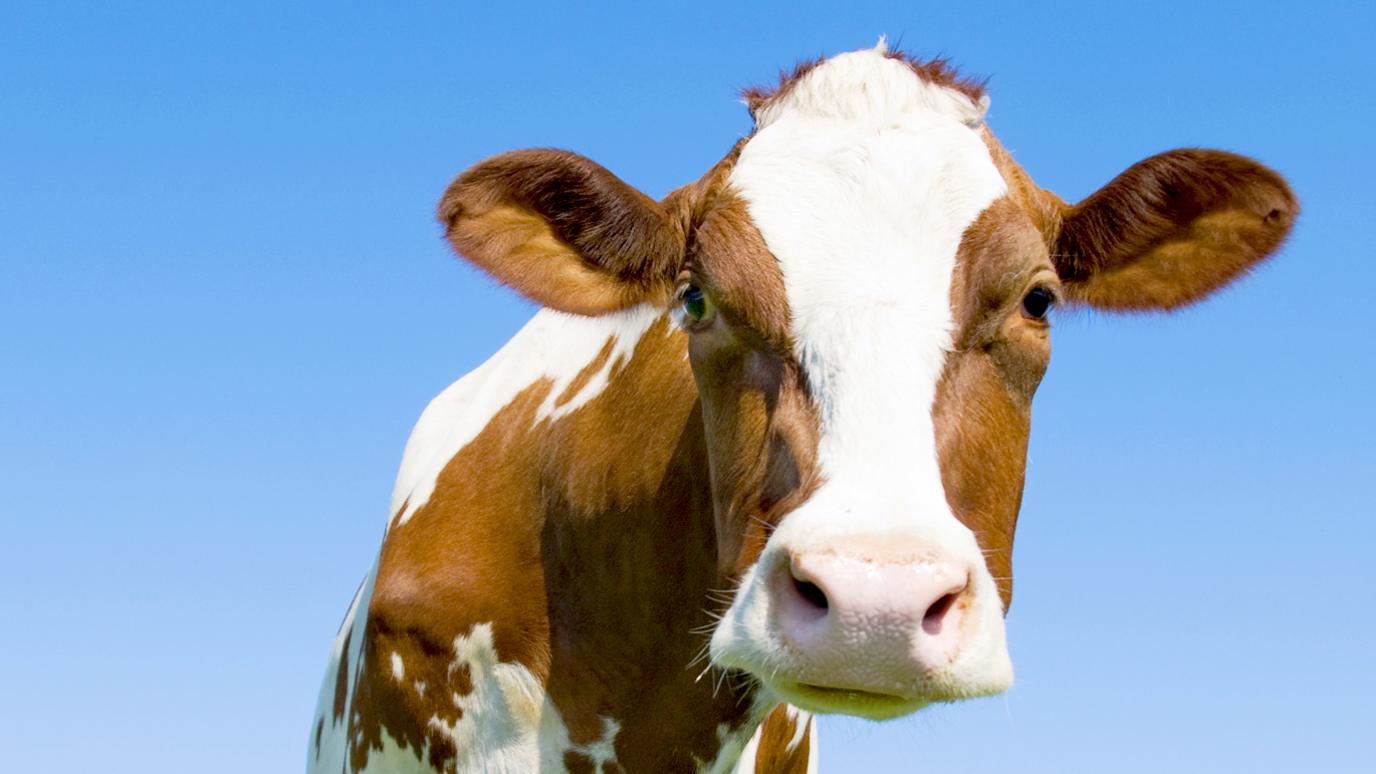
- Published24 April 2019
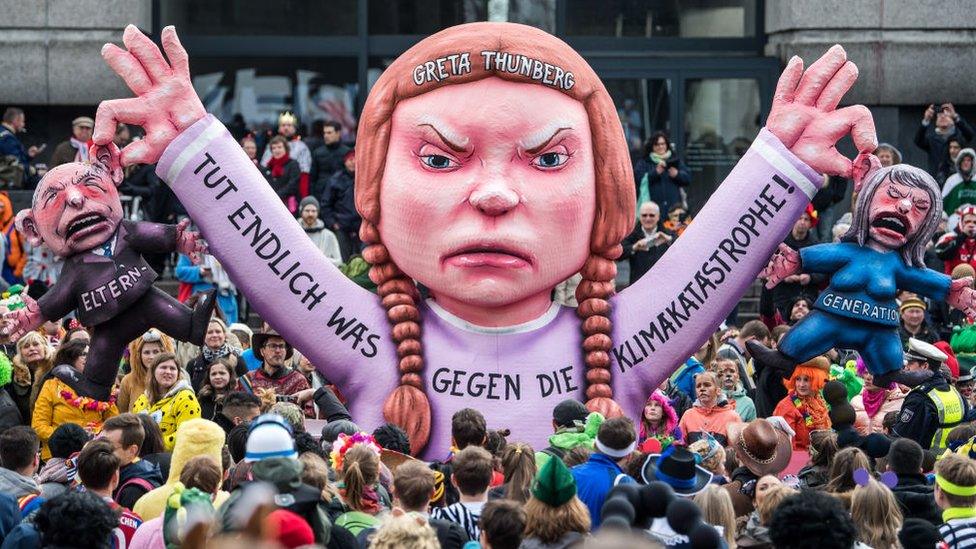
- Published16 February 2019
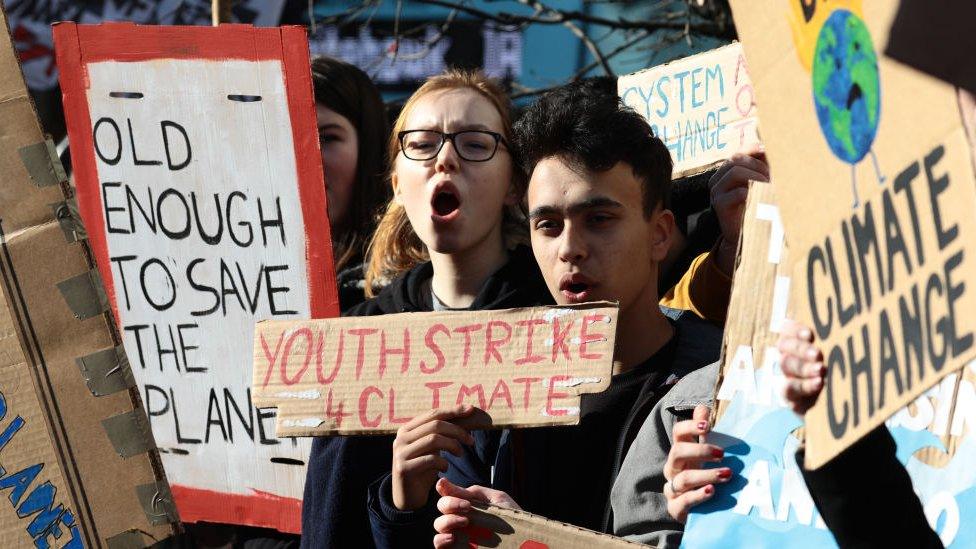
- Published17 April 2019
